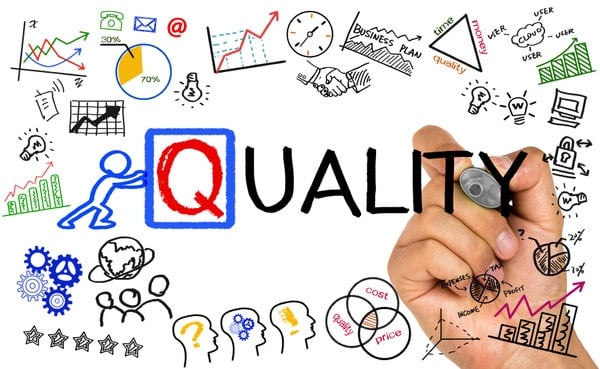According to one CareerBuilder survey, more than 6,000 hiring professions suggested that they had experienced the negative effect associated with hiring someone who was a poor fit for the job. Twenty-seven percent of U.S. employers surveyed reported that just one bad hire had cost their company in excess of $50,000.
A company can only be as good as its employees. As Steve Jobs once said, “The secret of my success is that we have gone to exceptional lengths to hire the best people in the world.” When it comes to judging the success of your hiring practices, quality of hire should absolutely be your number one metric.
Prosperous companies develop a structured approach to hiring the best talent. They invest their resources into finding great people who will contribute to the long-term success of the organization. Let’s face it – hiring the wrong person can be expensive. You might invest a great deal of time and money training this individual, only to find that they are a poor performer or a bad fit for the company culture.
What are some of the key reasons why quality of hire should be your most important metric?
Hiring the Right People Has a Positive Impact on Performance
Finding talented people that are well-suited to the position and company can lead to dramatically better performance both in the short-term and long-term. When you invest the time and effort into selecting the best possible candidates, these ideal matches are able to hit the ground running from day one. The money you invest in training this individual will lead to an immediate return on investment.
Hiring the Wrong People Can Be Costly
One Fast Company infographic reports that 41 percent of those surveyed reported that just one bad hire in the last year had cost them at least $25,000. Another 25% of respondents reported that a bad hire had cost them more than a whopping $50,000.
Employing the wrong people can be a losing game. Not only do you waste money, time and effort investing in an individual who will ultimately not last in the position, you are also then faced with the task of replacing that person when they leave the job.
The costs of bad hires are much more than financial. Companies suggest that hiring the wrong people also leads to lower worker productivity, expenses associated with hiring and training replacements, negative impacts on company morale, negative impact on clients and lost time associated with hiring other employees.
How to Improve Your Quality of Hire
So what can you do to avoid bad hires? You can take a quality of hire assessment that suggests that there are a number of things that can contribute to improve employee selection. Two of the most prominent issues seen in a Careerbuilder survey involve pre-employment screening. Twenty-one percent of companies attributed their bad hires to not testing or researching a candidate’s skills thoroughly enough prior to hiring, and 11% attributed the problem to not performing adequate reference checks.
Reference checking is one component of the hiring process when well done that can dramatically improve your quality of hire. If your organization is struggling to complete this task effectively, automated reference checking is one solution that might produce better and more accurate results. This automated process allows hiring managers to collect a large amount of information from each candidate’s contacts quickly without spending a lot of time on each reference.
To learn more about how you can use automated reference checking to improve your quality of hire metric, schedule a call with our experts today.



